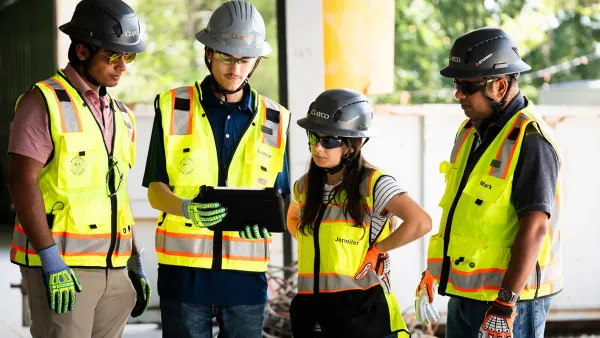Dive Brief:
- ITServe Alliance filed a lawsuit against U.S. Citizenship and Immigration Services (USCIS) Jan. 26 "demanding $350 million in refunds to its member companies. A victory in this lawsuit will have USCIS write big checks to tech companies nationwide," the trade organization said in a tweet Jan. 27.
- The group alleges that USCIS illegally accumulated millions in border fees by charging a $4,000 fee for H-1B applications for professionals who extend their visa status while inside the U.S. The plaintiff argues the fee should only be charged when the employee enters the country. According to the lawsuit, posted by the National Foundation for American Policy, ITServe is advocating on behalf of "50/50" tech companies in its membership, including iTech US, Saxon Global, and SmartWorks. Companies that have more than 50 workers in the U.S. and more than 50% of workers on H-1B and L-1 are referred to as 50/50 companies.
- ITServe is seeking for USCIS to "pay restitution or refunds in the actual amount of unlawful fees collected for the past six years from today or back to January 14, 2014," the lawsuit states. The total amount of the "unlawful fees for change of status petitions is approximately $350 million dollars."
Dive Insight:
With increasing H-1B restrictions, Silicon Valley will seemingly be paying more using current methods of seeking top talent. The H-1B visa, a non-immigrant visa, allows American companies to employ graduate-level workers in specialized fields such as IT that require theoretical or technical expertise.
More H-1B visas are going to U.S. tech companies, according to a 2018 National Foundation for American Policy (NFAP) report. Amazon, Microsoft, Intel and Google were among the top 10 employers for approved H-1B petitions for initial employment. But employers petitioning for H-1B visas might have to incur higher fees.
The Department of Homeland Security (DHS) proposed a rule Nov. 14, 2019 to "adjust USCIS fees by a weighted average increase of 21%, add new fees for certain benefit requests, establish multiple fees for petitions for nonimmigrant workers, and limit the number of beneficiaries on certain forms." The department stated that goal is to "ensure that USCIS has the resources it needs to provide adequate service to applicants and petitioners." This fee would be on top of a $10 electronic registration fee for employers filing petitions for H-1B visas during the 2021 cap season, USCIS announced in December 2019.
A January 2019 final rule was issued by DHS reversing the order by which USCIS selects H-1B petitions for the 65,000 H-1B allotment, and the advanced-degree exemption, which sets aside an additional 20,000 visas. The agency said it expects the lottery reversal to increase the number of individuals with advanced degrees from U.S. institutions selected for further processing.
In 2018, Pew Research Center reported, "The H-1B program is now the primary way employers in the U.S. hire high-skilled foreign workers."
But researchers said the program could shrink under the Trump administration's stricter requirements, and according to an NFAP report published in October 2019, that seems to be the case. The report states that in the first three quarters of the 2019 fiscal year, "USCIS adjudicators denied 24% of H-1B petitions for 'initial' employment and 12% of H-1B petitions for 'continuing' employment."
Researchers stated that the 12% denial rate for continuing employment is at an historical high — "four times higher than the denial rate of only 3% for H-1B petitions for continuing employment as recently as FY 2015."











